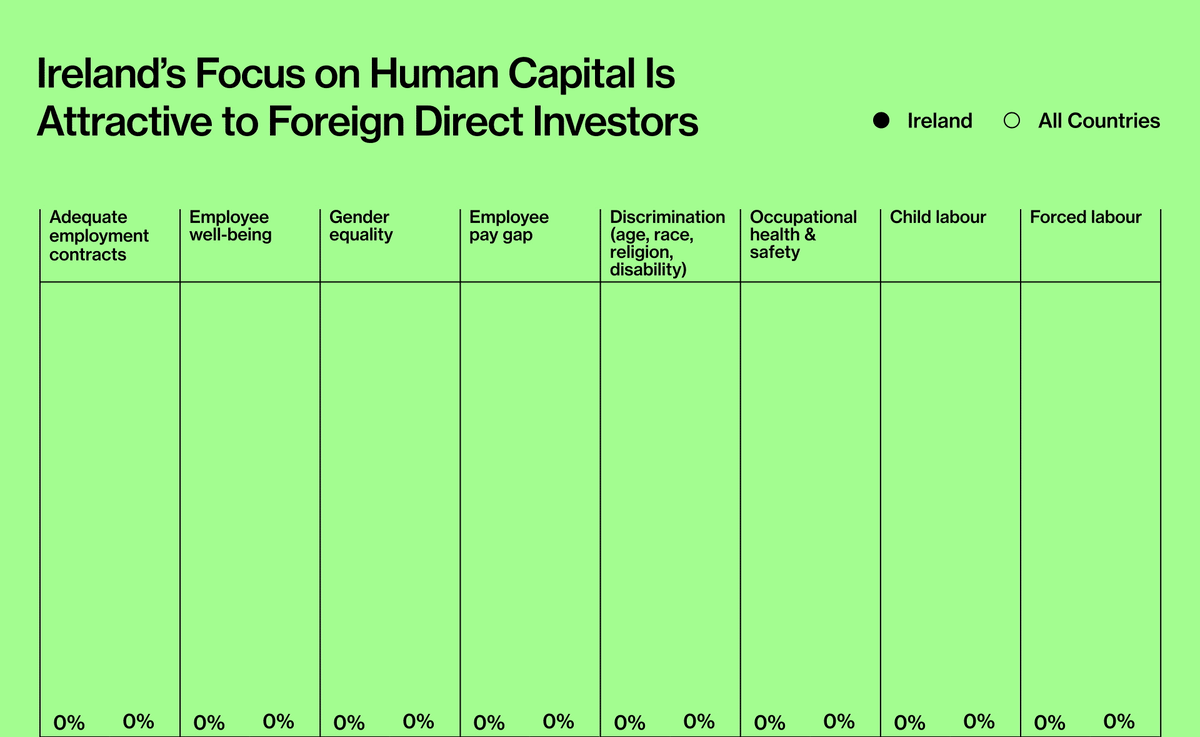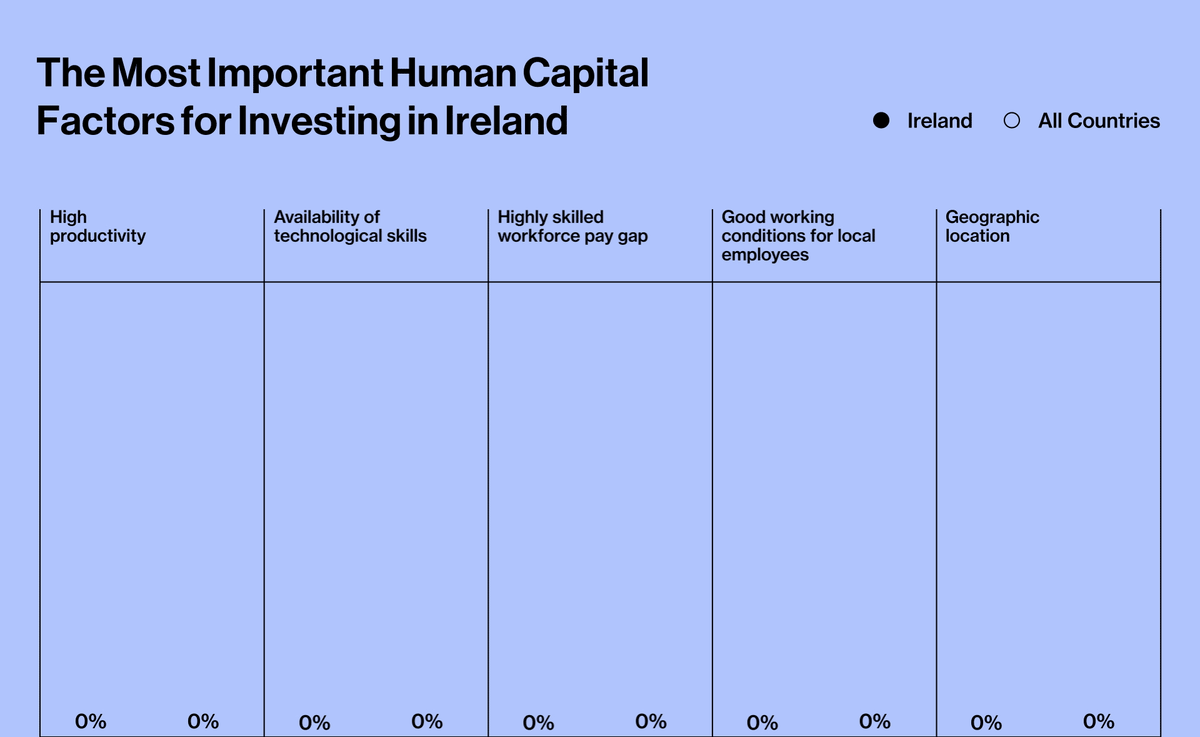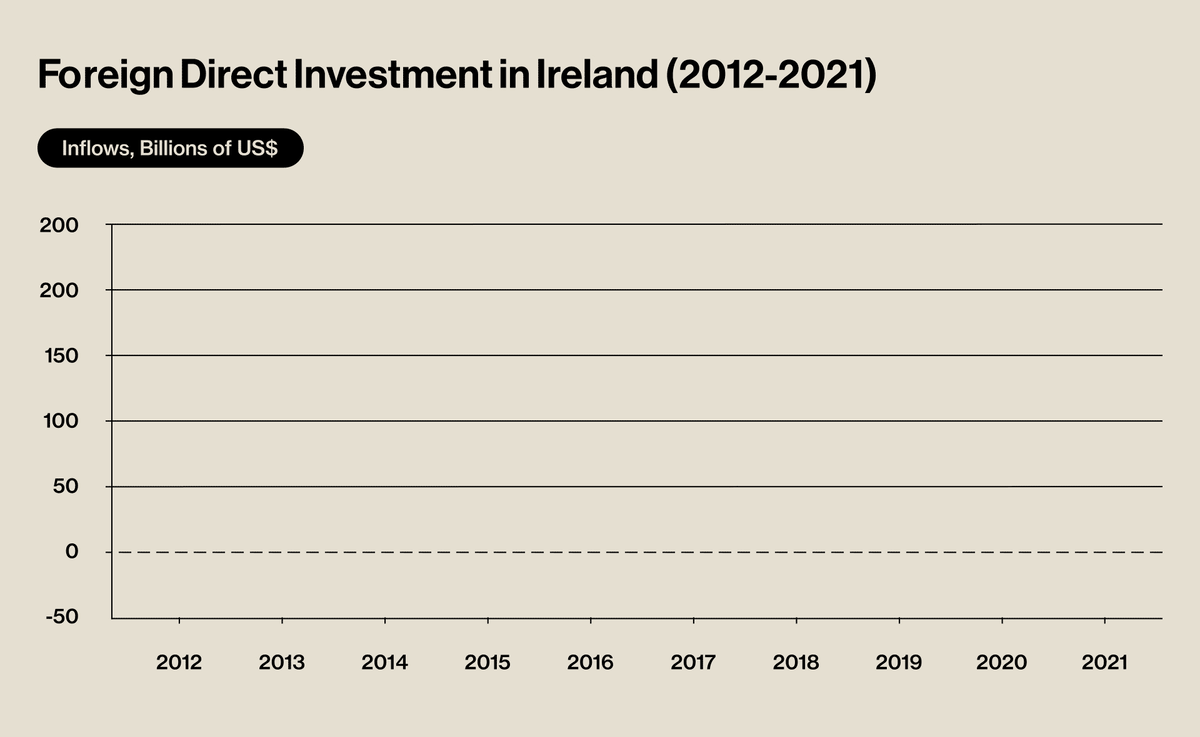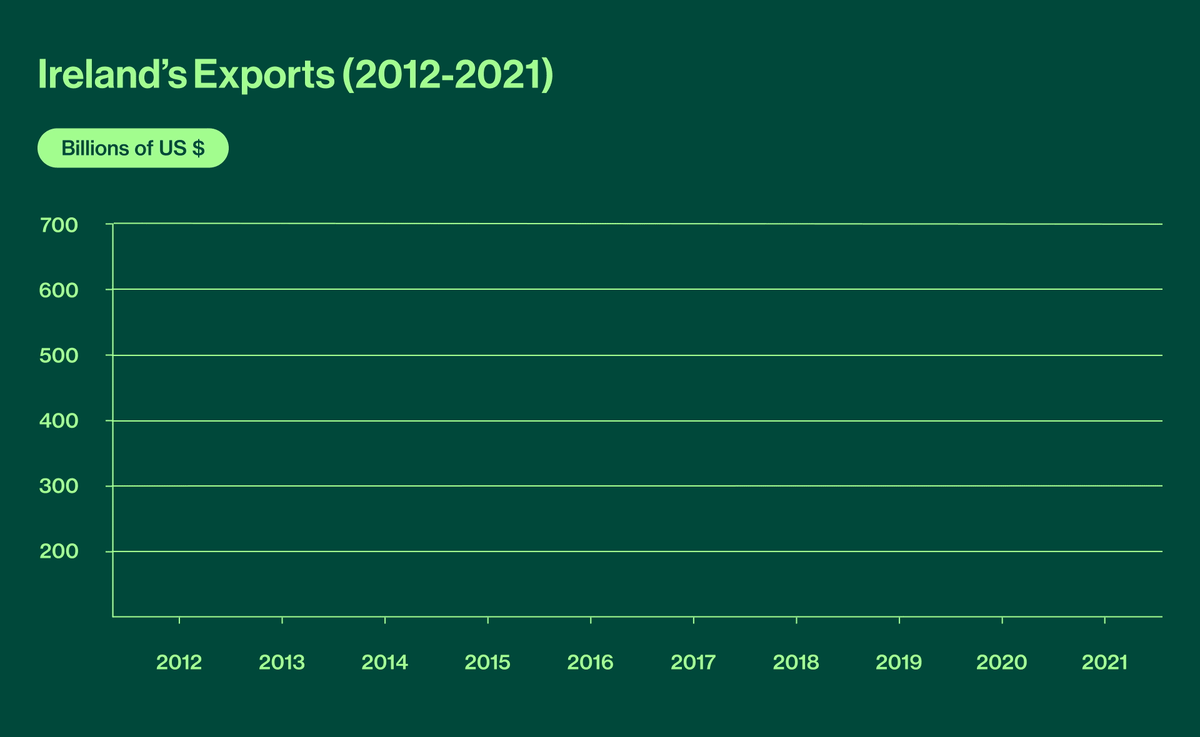
Resilience During Times of Change: Ireland’s Growth in Focus
Ireland is a thriving hub for some of the world’s biggest companies, as well as thousands of homegrown enterprises that are on a trajectory of rapid growth—despite a relatively gloomy global economic outlook for 2023. Here’s why.
With its strategic location as a gateway to Europe, Ireland offers a robust economy, a highly skilled labor force and positive commercial outlook during a relatively contractionary period worldwide.
“Our investors talk to us about a very productive workforce and environment that gives them a very attractive return on an investment,” says Kieran Donoghue, Global Head of Strategy, Public Policy & International Financial Services at IDA Ireland, the government’s inward investment agency. “These investors talk about the adaptability and the flexibility of their staff and the resilience of their operations, which was demonstrated even more so during the pandemic. They talk about an environment that's very innovative.”
Google, Airbnb and Microsoft are just some of the major tech companies, including Google, Facebook, Airbnb, PayPal, Microsoft, eBay, LinkedIn that have set up their European headquarters in Ireland’s capital—attracted by its tax incentives for research and development, highly skilled, English-speaking workforce, welcoming culture, regulatory environment and world-leading connectivity.
Leo Clancy, CEO of Enterprise Ireland, the government agency responsible for the development of Irish enterprises in world markets, believes this is because Ireland is “starting from a very good place” despite macroeconomic uncertainty. “The Irish economy has performed really well throughout the pandemic period, and continued to perform well as the market rebounded,” he says. “We have full employment—2.6 million people employed for the first time ever in the economy—and growth across all sectors. Things are uncertain globally, but I’d rather start from here than anywhere else.”
Ireland’s Business Landscape: A Snapshot

Why multinational corporations choose Ireland
Ireland is home to 16 of the top 20 global tech companies and the top three enterprise software providers, collectively employing over 106,000 people. The number of people directly employed by multinational companies has now reached 301,475—a record high and a 9% increase from 2021. While Dublin’s Silicon Docks stands out as a concentrated community for digital and technology firms of all sizes, 52% of the investments won in 2022 were for other locations, with employment growth recorded in every region of the country. In 2022, 68% of the 218,718 jobs at Enterprise Ireland-supported companies were outside of Dublin.
The top 10 multinational companies in Ireland

A diverse startup culture
Employees today expect much more from employers when it comes to diversity, equity and inclusion (DEI), and this global trend is even more pronounced in Ireland. Sixty-two percent of workers in Ireland consider DEI a factor in whether they stay or leave their organization, according to a 2022 Zellis report; this provides an added incentive for multinational organizations to deliver effective DEI programs. The same study reveals that nearly a third of employees in Ireland (30%) feel that their organization has made significant progress in boosting DEI. Female participation in the labor force increased by 10.3% in the year to Q1 2023, up by 114,300, to 1,225,000.
The Irish startup ecosystem is also backing diversity. For example, Inclusio founder Sandra Healy is a proponent of science-based ways to improve on DEI. The Enterprise Ireland-backed tech company recently secured €6.2 million ($6.6 billion) in funding and plans to create 80 local jobs to support its growth. Inclusio is an example of a successful homegrown business that is dedicated to increasing female representation in Ireland.
“We’re seeing an increased number of female founders backed by our seed funding. We’ve already exceeded the target that we set for 2024 for female founders,” says Clancy.
Echoing this sentiment, Bloomberg Media’s 2022 global study into foreign direct investment (FDI) flows reveals that within the human capital theme, those considering investing in Ireland are most interested in the country’s gender equality (60%).

“There's almost a global village mindset that a lot of Irish people possess that is very much aligned with the reality of how international businesses operate,” Donoghue adds. “When you think that some of our clients herein Ireland employ people from over 90 nationalities, they're like a mini United Nations while they're based in Ireland. When you think about all of the diversity in each company, in a city like Dublin that has a unique mix of languages and cultural backgrounds, the multidisciplinary approaches to problem solving in international businesses must be quite something to experience.”
Ireland’s connectivity: A gateway to Europe
Ireland’s global footprint eclipses its location as the emerald isle off the coast of mainland Europe, with over 1,300 flights a week from Dublin to Europe and strong maritime connections that have increased weekly crossings to France from 12 to 50 in the past two years. Some of the biggest companies in the world today, such as Pfizer, Janssen, Zurich and, MetLife, Google and VMWare, have their European headquarters in Ireland. “These firms are embedded in local communities. They hire locally, they have very active corporate social responsibility agendas. The social contribution that they make is significant as well,” adds Donoghue.
Boosting the best of Ireland: Exports and FDI
Of the 1,800 multinational firms that currently operate in Ireland, the number of people employed in those companies increased by 9% last year, accounting for more than €300 billion ($321 billion) in annual exports. “When you consider that portfolio, that group of companies on average invest €30 billion ($32 billion) in the economy each year. That's in wages and salaries and purchases of Irish materials, goods and services,” says Donoghue. “Then they probably invest another €9 billion ($9.62 billion) in capital expenditure when they're reinvesting in their Irish operations. That's a very significant economic contribution to the country, and we're estimated to grow GDP this year by about 4%.”
Globally, investors are placing greater emphasis on human capital than ever before. According to Bloomberg Media’s FDI study, investors considering Ireland as an FDI destination cited the workforce’s technological skills (90%) and high productivity (92%) as some of the most important investment factors in the next three years, far outpacing the global average (85% and 87% respectively).

“Companies also see the opportunity to partner with academics and researchers in our university system to feed a pipeline of ideas that could lead to new products or services. It also gives them exposure to a talent pool that they could potentially hire to work in the R&D centers they're setting up here,” says Donoghue.
The Irish economy has been transformed by the trade opportunities provided by its 50 years of membership in the EU. Access to the EU single market and the benefit of EU trade deals with the rest of the world have opened up many new market opportunities for thousands of Irish businesses. For Clancy, a priority for Enterprise Ireland this year is “supporting Irish-owned companies to achieve greater scale and expand their global footprint.”


An economy transformed
In 1973, when Ireland first entered what was then known as the European Economic Community, the country’s total global exports were €1.1 billion ($1.2 billion). The nation had a substantial trade deficit and was heavily dependent on the UK, which accounted for 55% of exported goods, and the majority of Ireland’s exports were tied to agriculture. According to Enterprise Ireland, client exports to the eurozone increased by nearly 85% over a span of 10 years, from €3.27 billion ($3.5 billion) in 2011 to €6.04 billion ($6.46 billion) in 2021. Due to a broad export base across a variety of goods and market niches, Ireland now has a trade surplus of over €60 billion ($64 billion).
According to Enterprise Ireland’s Clancy, 31% of Irish exports go to the UK, 25% to Europe and 18% to the US. Ireland’s EU membership also aids in attracting high levels of FDI, which has a positive impact on the growth of Irish SMEs. It has also led to and robust and collaborative R&D ecosystems across a broad spectrum of cutting-edge high-tech manufacturing and service businesses. Growth opportunities abound beyond these familiar trade routes, Clancy says. “It’s pretty broad-based, I would say. The Middle East, Africa and India are probably the fastest-growing markets for us.”
As the world enters a shaky second quarter of 2023, Ireland stands out as a vibrant location for thousands of domestic businesses that are poised for fast expansion alongside some of the world’s largest multinational corporations. “If you're looking for multinational, multicultural, multidisciplinary talent, Ireland's a very attractive place to be,” Donoghue adds. “When everyone's so concerned about uncertainty, the management of risk and dealing with adverse conditions, Ireland strikes many investors as relatively certain, more predictable and stable than a lot of other locations because of the commitment that the government has had through public policy to attracting international investment going back to the 1960s.”
